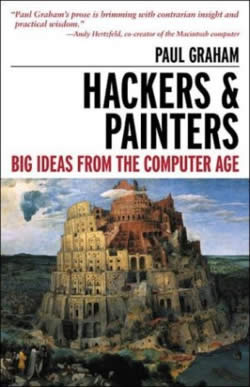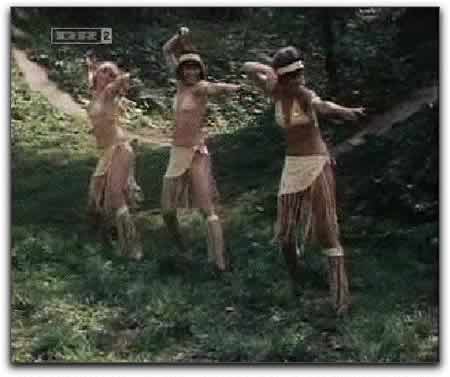
Back when I had a personal technical blog (The Happiest Geek on Earth, no longer online),
I used to devote some time to voicing my annoyance with Smug Lisp
Weenies, of whom Paul
Graham is a high-ranking member, if not its Supreme
Commander. Some of these rantings were even chronicled
in Boing
Boing.
In the time that has passed between then and now, Graham’s stance
towards non-Lisp languages, particularly one of my favourites, Python,
has mellowed. He’s also found other topics to write about. As a
result,
a visit to paulgraham.com no longer results in Mr. Graham’s getting up
my nose, at least as long as I don’t peruse the archives.
However, the Law of Conservation of Annoyance has asserted itself, as
Maciej Ceglowski
— both a programmer and a painter — has a bone to pick with Mr.
Graham:
About two years ago, the Lisp programmer and dot-com millionaire Paul Graham wrote an
essay entitled Hackers and
Painters,
in which he argues that his approach to computer programming is better
described by analogies to the visual arts than by the phrase “computer
science”.
When this essay came out, I was working as a computer programmer, and
since I had also spent a few years as a full-time oil
painter,
everybody who read the article and knew me sent along the hyperlink. I
didn’t particularly enjoy the essay — I thought the overall
tone was
glib, and I found the parallel to painting unconvincing — but
it didn’t
seem like anything worth getting worked up about. Just another
programmer writing about what made him tick.
But the emailed links continued, and over the next two
years Paul Graham steadily ramped up his output while moving
definitively away from subjects he had expertise in (like Lisp) to
topics like education, essay writing, history, and of course painting.
Sometime last year I noticed he had started making bank from an actual
print
book of collected essays, titled (of course) “Hackers and
Painters”. I felt it was time for me to step up.
Even if you’re not a computer programmer, you’ll find
Maciej’s essay, titled Dabblers and Blowhards, interesting — even if
only as a look into what geek pissing contests, complete with cruel-albeit-funny cheap shots, look like. He doesn’t
stray too far into technical esoterica and merely argues that hackers
are much, much closer in sprit to engineers rather than artists.





